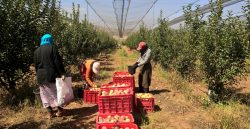Residents of South Africa’s townships have long relied on informal retailers known as spaza shops for food, household items, and self-employment.
But recent changes in the sector have led to the rise of widespread exploitation and debt bondage, The Conversation reported on Monday.
Spaza shops are categorized as informal retailers because they are unregistered businesses and operate entirely in cash. This informality is what allows poor shop owners to trade from their homes to support themselves without formal legal recognition.
But a new investigation by the Sustainable Livelihoods Foundation and PLAAS has revealed that a majority of spaza shops are now informal by choice—that is, they are larger, wealthier operators that have intentionally embraced informal conditions in order to bypass regulations.
Unlike traditional spaza shops, these businesses are operated by larger wholesalers upstream and employ staff, often in highly exploitative conditions.
A majority of spaza shop employees interviewed as part of the investigation were working over 15 hours per day—with no days off—for monthly earnings as meager as R400 (around $27.22). Many also reported withheld pay.
Foreign workers were found to be subject to particularly high levels of abuse.
Most reported working to repay debts for travel expenses to their bosses, who also kept employees’ passports and forced them to sleep in the building.
The Conversation reports:
These conditions clearly violate the country’s labour laws, which stipulated at the time that retail workers must earn at least R3,701 per month for a 45-hour work week. The law stipulates 12 hours of rest in each 24-hour period, or 36 consecutive rest hours per week, including Sundays, unless agreed in writing.
Further, the working conditions we encountered trigger the great majority of the working conditions identified by the UK Gangmasters and Labour Abuse Authority as warning flags that people might be working as bonded labour.
If our sample is anything to go by, there may be many thousands of shopkeeper employees who toil behind the sales counter under these circumstances.
The spaza shop sector has changed significantly over the past decade as supermarkets and shopping malls have forced informal business owners to adapt to compete.
But rather than focusing on the rise of exploitative businesses, the debate surrounding changes in the spaza shop sector has been dominated by discussions that focus on an increase in foreign traders.
Encouraged by populist politicians, immigrant entrepreneurs have become the target of xenophobic campaigns that blame them for hurting South African livelihoods and undercutting traditional spaza shops.
However, the findings of the investigation show that it is the broader structural shift toward what the authors call ‘informalist’ businesses that is hurting business owners and employees alike—and that in fact, foreign workers are often the worst affected.
It is up to the South African government to address the issue by enacting fair legislation that does not allow for the intentional avoidance of regulations.
Without decisive action, the rapid changes taking place in the spaza shop sector risk pushing thousands of workers into modern slavery.







Freedom United is interested in hearing from our community and welcomes relevant, informed comments, advice, and insights that advance the conversation around our campaigns and advocacy. We value inclusivity and respect within our community. To be approved, your comments should be civil.